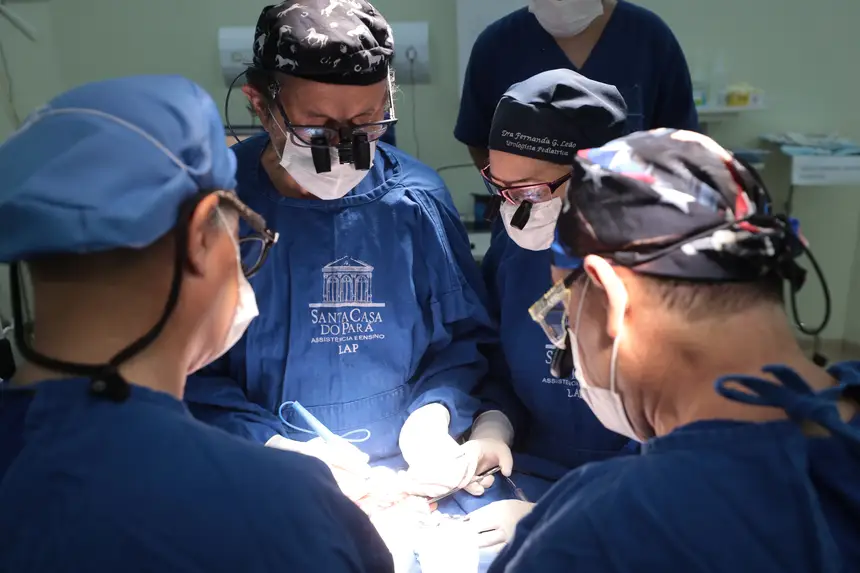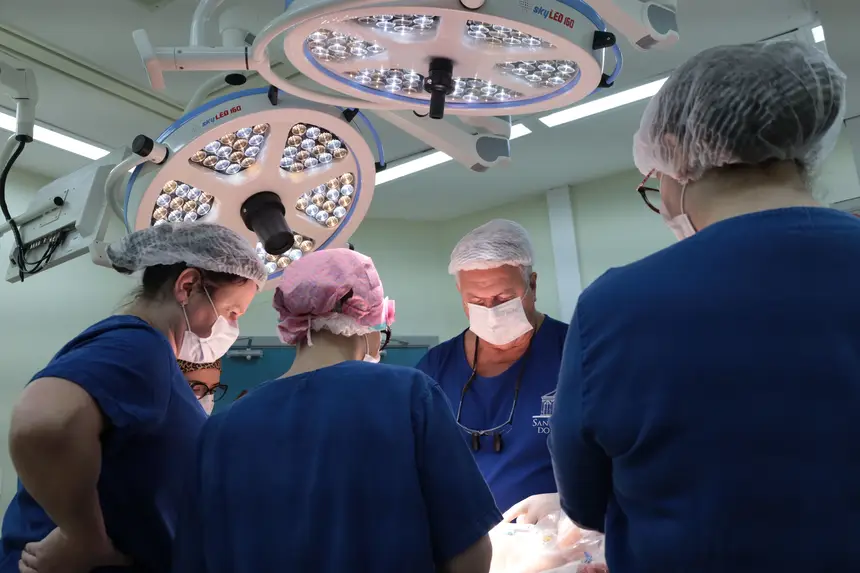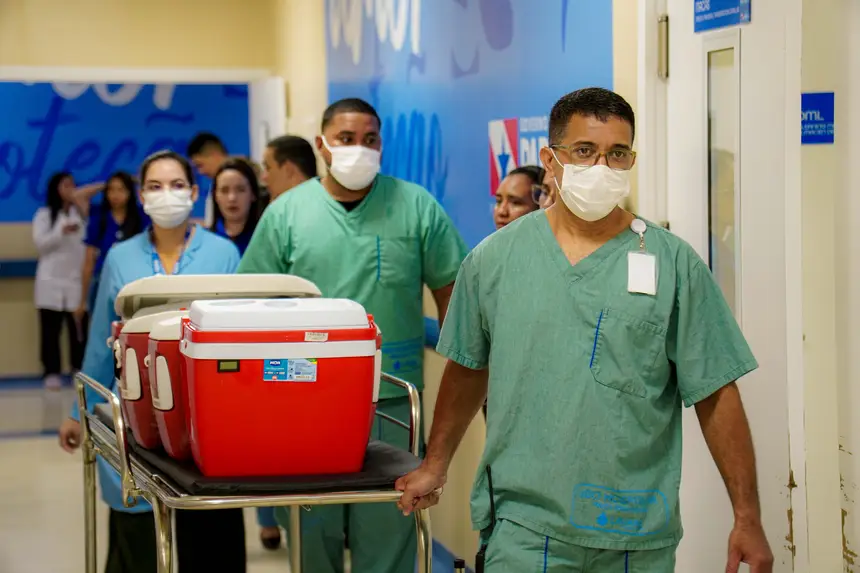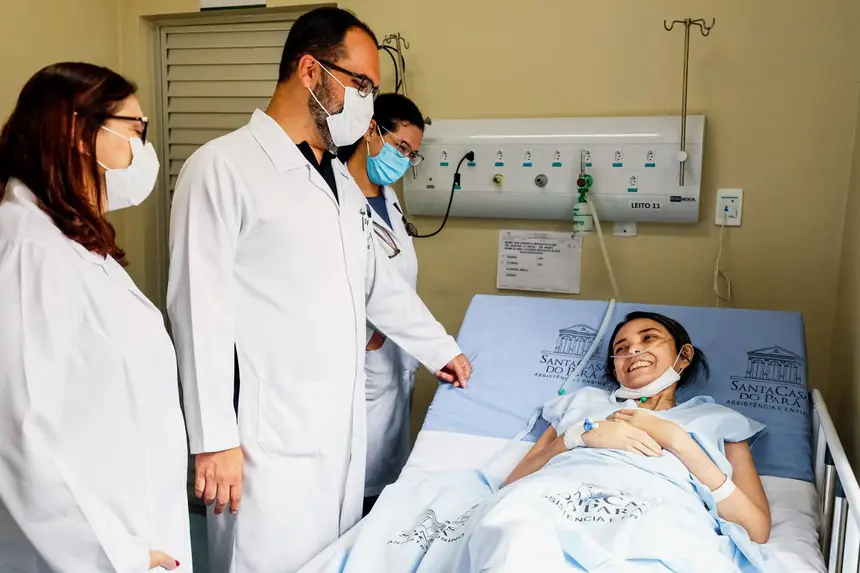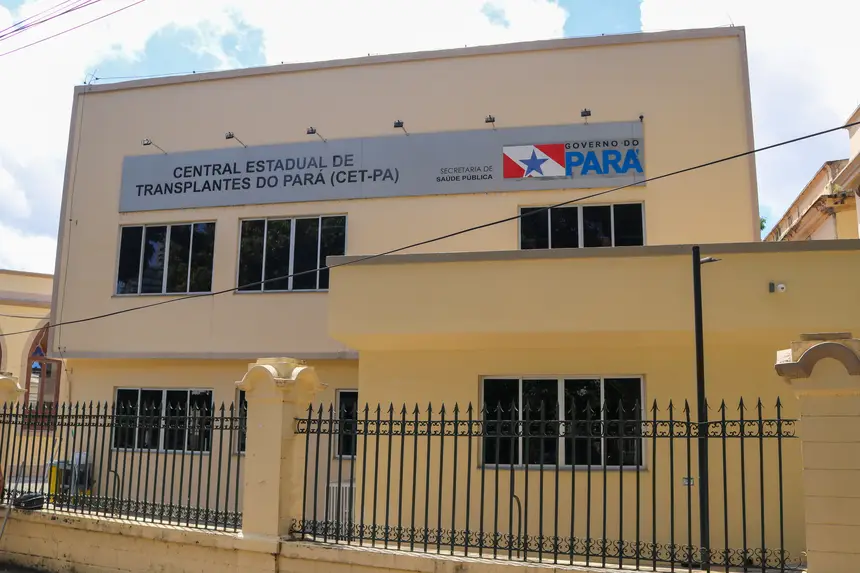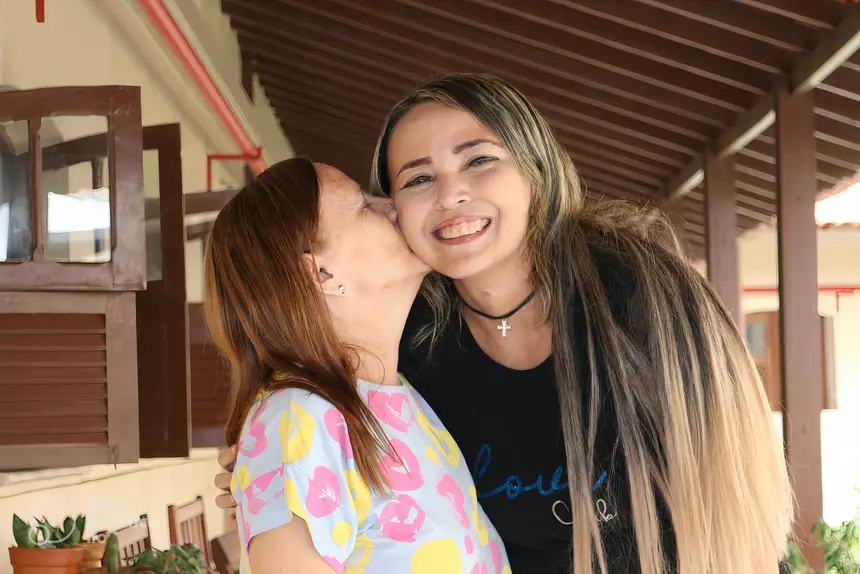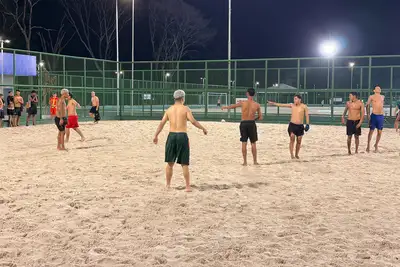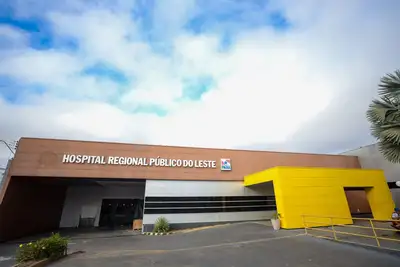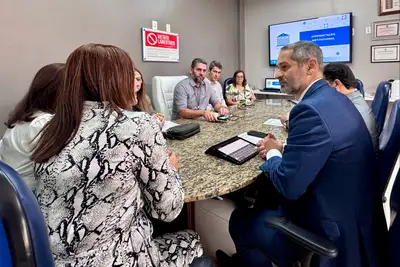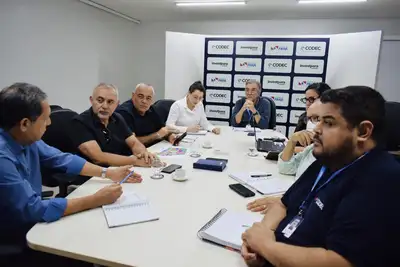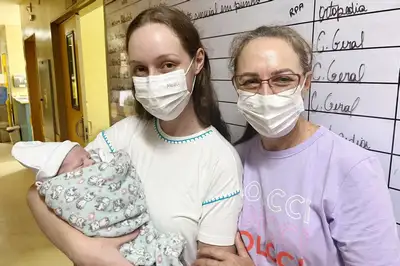Organ donation helps save lives and reduces waiting list for transplants in Pará
More than 230 procedures were performed between January and June 2025. The state offers comprehensive and free assistance to patients.
In the first six months of 2025, Pará reached a significant milestone in the number of transplants. During this period, 231 surgical procedures were performed, consisting of the replacement of an organ such as a kidney, cornea, and liver, for example. Among these, the most notable were, in this order, cornea transplants (178), kidney (33), bone marrow (14), and liver (6). The data is from the Pará State Health Department (Sespa).
Sespa highlights that this positive scenario in the area of transplants results from the efforts of the public health network in Pará, which offers comprehensive and free assistance to patients. The state government has made continuous investments to improve services, already aligned with the national transplant model.
The Santa Casa Foundation of Pará has already performed 22 liver transplants, with survival rates higher than the national average, since the beginning of 2023, when it started the procedure with liver transplants in Pará, as a public institution.
Expansion - In 2019, Santa Casa expanded the service to pediatric kidney transplants. Since then, 39 children and adolescents have undergone the procedure. Currently, about 15 pediatric kidney patients are waiting for a transplant at the hospital.
The first liver transplant surgery at Santa Casa took place on February 26, 2023, benefiting social worker Ana Gabriela Mesquita Alves (then 42 years old). The transplant was successful thanks to the professional dedication of the teams involved in organ procurement and the surgical area. The liver was implanted in the patient, who had been diagnosed with autoimmune hepatitis.
Ana Gabriela developed liver cirrhosis, an incurable disease, and only a transplant could save her life. At the time, she was on the liver transplant waiting list and received the organ due to the altruistic gesture of a couple who authorized the removal of their 14-year-old daughter's organs, who passed away due to a cerebrovascular accident (CVA).
Benefits - "I spent years sick, in hospitals and ICUs. I even went to Fortaleza (CE) to try for a transplant, but I couldn't and returned to Belém. Today, I thank the entire team that made this transplant possible, and the donor's family. A part of that person is alive inside me. That's why it's important to talk about organ donation and raise awareness about the issue, so that families authorize it and save other lives,” said Ana Gabriela.
According to Rafael Romero Garcia, coordinator of the Liver Transplant team at Santa Casa, “if there were enough donations, we could have a zero waiting list. In the North region, donation rates are very low compared to the rest of the country. And without donation, there is no transplant. There is no reason for us to have everything we have here in terms of team, materials, equipment. High investment, but if there is no donation, it becomes difficult. We can only function if there is donation.”
The surgeon reiterated that “there is only transplant with donation, and donation only happens in Brazil if the family authorizes the removal of the organ. But for that, people need to talk and express their interest in being a donor while still alive. Accepting donation is a very noble gesture. In a way, life continues, whether in the liver, kidney, or corneas of someone.”
Daily Struggles - Jefferson Assayag is a history teacher and was transplanted in March of this year at Santa Casa. He recounted that after being hospitalized for 39 days in 2020, he ended up contracting several diseases, the most serious being liver and pulmonary cirrhosis.
“Liver cirrhosis is a serious problem because the liver is responsible for more than 50 functions in the body, and this affected my life and my family's, as well as friends who noticed that I was in immense fragility. And it’s not easy to overcome and have to enter a transplant waiting list hoping for someone to have the solidarity to donate their organs and for the committed family to fulfill the wish of someone who was alive and has passed, right?”
“During our struggle, a person appeared whom I do not know, but I have been praying to thank her, thanking her family for this altruistic act of donating the liver I received. I know it’s not easy for a person, in a moment of pain, to go through this experience. I am very grateful for this act of selflessness and human solidarity. In this sense, I make an appeal for the importance of organ donation that saves and serves other lives, so that other people can continue their journey here on earth,” said Jefferson Assayag.
'They are competent professionals,' says patient transplanted by the Santa Casa team
Professor Assayag highlights the work of the entire hepatology team at Santa Casa, under the command of Dr. Rafael. “It’s a department that really works. A necessary department that is serving the community. They are competent professionals who seek to save the lives of many patients. So many people I know who have been on the waiting list, who have received their organs and whose lives have changed. I am very grateful for the work of the professionals at Santa Casa do Pará.”
For Dr. Rafael Garcia, the transplant surgery is a professional and personal milestone. “It’s the realization of a personal dream. We study our whole lives to do this. It took years of training and preparation, and here, in Pará, at Santa Casa, we perform this procedure. And with the engagement of all areas to make it work well. Having this Center here in Pará prevents the population from having to leave the state. Seeing this result is gratifying.”
In April 2022, Ordinance 134 was published in the Official Gazette of the Union, authorizing the Santa Casa Foundation of Pará to perform liver removal and transplantation through the Unified Health System (SUS). The hospital has the capacity to perform at least one transplant per week. Currently, there is a waiting list of 26 active patients in the hepatic area and more than 30 in the final evaluation process.
Awareness - Érika Costa de Moura, pediatric nephrologist at the Santa Casa Foundation, highlights the importance of the act of donation. “To talk about transplant, we need to keep in mind that organ donation can only be achieved with the family’s authorization. So it’s important that we have the awareness to communicate with our family members that we have the interest in donating while alive, so that in that difficult moment, in that moment of pain, the family can make the decision to put into practice the wish of that person who wanted to be an organ donor.”
“With organ donation, we can benefit up to 8 to 11 patients, depending on the location, such as liver, kidneys, cornea. We can accommodate these patients. It’s important to remember that there are thousands of patients on the waiting list, including hundreds of children on the waiting list throughout Brazil. And as much as we can transplant a lot, we also have an increase every year. Every month, new patients arrive due to chronic kidney diseases,” informs the doctor.
Reinforcement in procurement - In just 20 days in May, the Dr. Abelardo Santos Regional Hospital (HRAS), in Icoaraci, a district of Belém, performed eight organ procurements. This result represents an advance in consolidating the unit as a reference in kidney and liver procurement in Pará.
“Eight people had a new opportunity. It’s a meticulous process, but also noble. Each donation carries with it a journey, a family, a choice that transforms the reality of those waiting for a transplant. Organ donation is not just about saving lives; it’s about transforming pain into hope, and these families understood that even in the most difficult moment, it is possible to make a difference,” said nurse Dejenane Costa, president of the Intra-Hospital Commission for Organ and Tissue Donation for Transplants (CIHDOTT) at HRAS.
At Abelardo Santos, the procedures follow the protocols of the Ministry of Health, with clinical examinations and the evaluation of the hospital's CIHDOTT, until the confirmation of the diagnosis of brain death. The procurements were made possible by the Pará State Health Department (Sespa), through the State Transplant Center (CET), as part of actions that strengthen the public transplant policy in the state.
The medical coordinator of the State Transplant Center of Sespa, Alfredo Abud, emphasizes that “initiatives to raise awareness in society, in general, are essential to maintain progress in performing transplants. Furthermore, it is crucial that families discuss organ donation and express this decision clearly. This act helps save lives,” highlighted Alfredo Abud.
According to Dr. Alfredo Abud, the goal is to provide comprehensive and free assistance to patients in the state. “The positive results we have been reaping in recent years are the result of a collective effort among health professionals, government, and society, promoting hope for those waiting for a transplant.”
Reference services in transplantation in the state public health network:
Ophir Loyola Hospital - HOL (adult kidney)
Santa Casa de Misericórdia do Pará Foundation - FSCMPA (pediatric kidney and liver)
Lower Amazon Regional Hospital - HRBA, in Santarém
Public Regional Hospital of Araguaia, in Redenção.
*These last two regional hospitals have support for kidney transplants.
(Collaboration by Suellen Santos - Ascom/Sespa)


